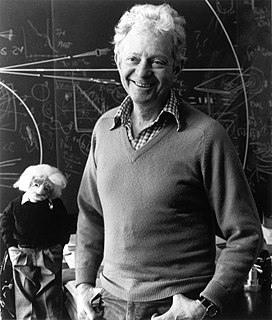A Quote by Leon M. Lederman
The British philosopher Bertrand Russell said that philosophy went downhill after Democritus and did not recover until the Renaissance.
Quote Topics
Related Quotes
BERTRAND RUSSELL, The Philosophy of Logical Atomism We've associated that word philosophy with academic study that in its own way has gotten so far beyond the layman that if you read contemporary philosophy you've no clue, because it's almost become math. And it's odd that if you don't do that and you call yourself a philosopher that you always get 'homespun' attached to it.
Academic environments are generally characterised by the presence of peole who claim to understand more than in fact they do. Linguistic Philosophy has produced a great revolution, generating people who claim not to understand when in fact they do. Some achieve great virtuosity at it. Any beginner in philosophy can manage not to understand, say, Hegel, but I have heard people who were so advanced that they knew how not to understand writers of such limpid clarity as Bertrand Russell or A.J. Ayer.
Russell's prose has been compared by T.S. Eliot to that of David Hume's. I would rank it higher, for it had more color, juice, and humor. But to be lucid, exciting and profound in the main body of one's work is a combination of virtues given to few philosophers. Bertrand Russell has achieved immortality by his philosophical writings.
Philosopher Bertrand Russell suggested that 'Men are born ignorant, not stupid. They are made stupid by education.' And, it was Albert Einstein who explained, 'Insanity: doing the same thing over and over again and expecting different results.' So which is it - stupidity, ignorance or insanity - that explains the behavior of my fellow Americans who call for greater government involvement in our lives?
I have always taken as the standard of the mode of teaching and writing, not the abstract, particular, professional philosopher, but universal man, that I have regarded man as the criterion of truth, and not this or that founder of a system, and have from the first placed the highest excellence of the philosopher in this, that he abstains, both as a man and as an author, from the ostentation of philosophy, i. e., that he is a philosopher only in reality, not formally, that he is a quiet philosopher, not a loud and still less a brawling one.
































